When you mention "Iraq" in a travel conversation, you often get looks of shock. But what if I told you there's an autonomous, stable, and breathtakingly beautiful region within its borders that welcomes tourists with open arms?
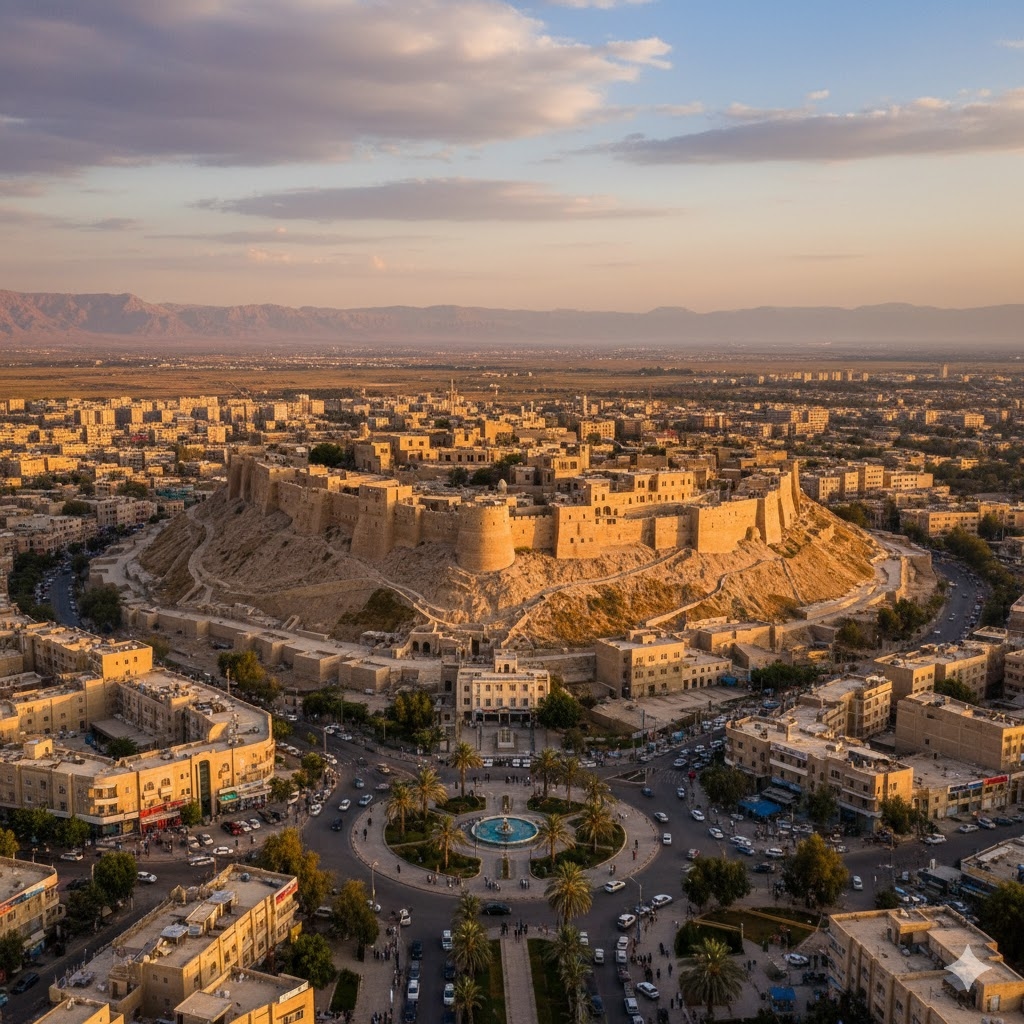
Welcome to Iraqi-Kurdistan, or the Kurdistan Region of Iraq (KRI).
This is a land of snow-capped mountains, ancient citadels, deep canyons, and a culture of hospitality so profound it will change the way you see the world. Forget every headline you've read; this is not the Iraq you see on the news. This is Kurdistan, a nation-without-a-state that prides itself on safety, moderation, and a history that predates empires.
This 7-day itinerary is designed to give you the perfect introduction to the KRI, from the ancient capital of Erbil to the soaring peaks of the Hamilton Road.
Is Iraqi-Kurdistan Safe for Tourists in 2026?
This is the most important question, so let's answer it first: Yes, the Kurdistan Region of Iraq (KRI) is overwhelmingly safe for tourists.
It's crucial to understand that the KRI is an autonomous region with its own government (the KRG), its own capital (Erbil), and its own highly effective military (the Peshmerga). The security situation here is completely different from that of Federal Iraq (Baghdad, Basra, Mosul). The KRI is a haven of stability in the Middle East.
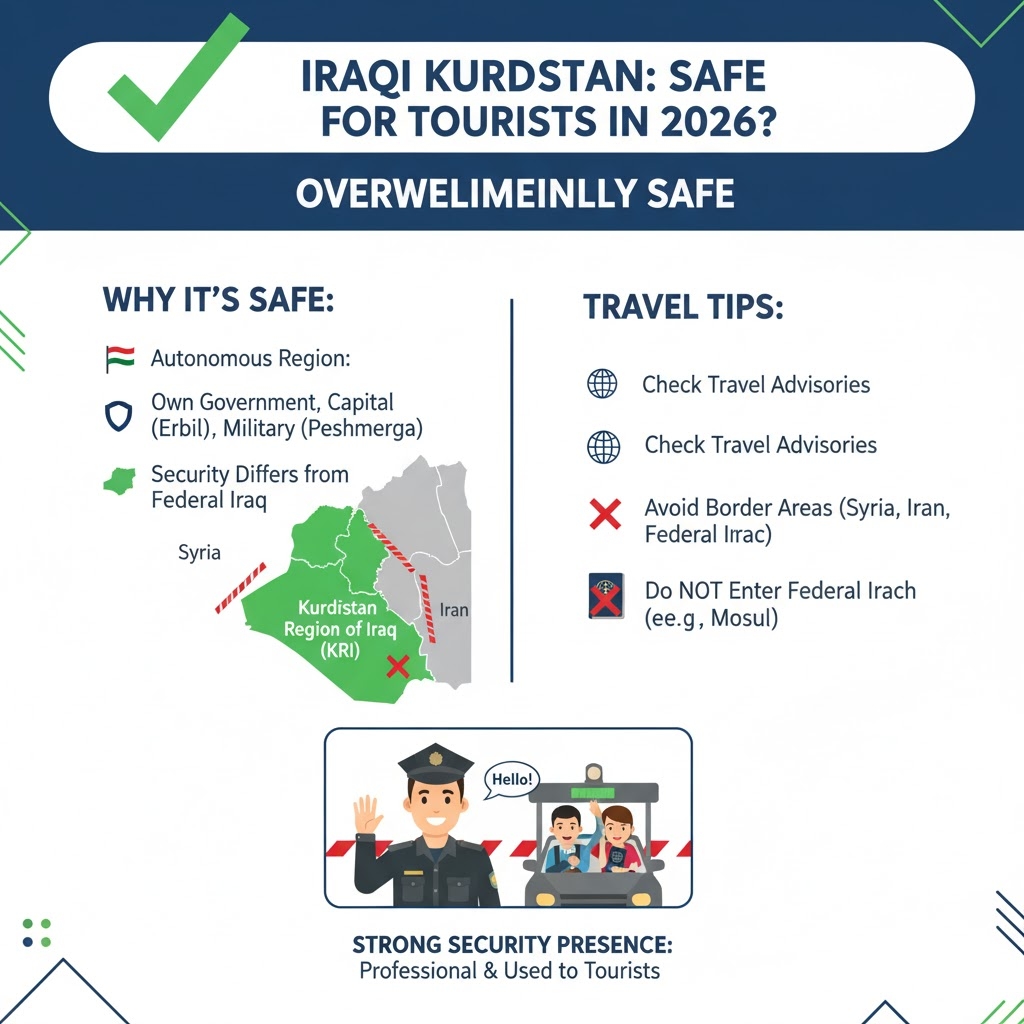
You will see a strong security presence, including numerous checkpoints, which are there to protect you. They are professional, used to tourists, and a simple "Hello" and flash of your passport is usually all that's needed.
That said, standard travel precautions apply:
Always check your home country's official travel advisories, which are often overly cautious but good to be aware of.
Avoid the border areas with Federal Iraq, Syria, and Iran. This itinerary keeps you well within the safe, central KRI.
Do not venture outside the KRI into Federal Iraq (e.g., to Mosul). Your KRI visa is not valid there, and it is not safe.
What's the Difference Between Kurdistan and Federal Iraq?
Think of the KRI as a "country within a country." It is autonomous, and its visa policy is completely separate.
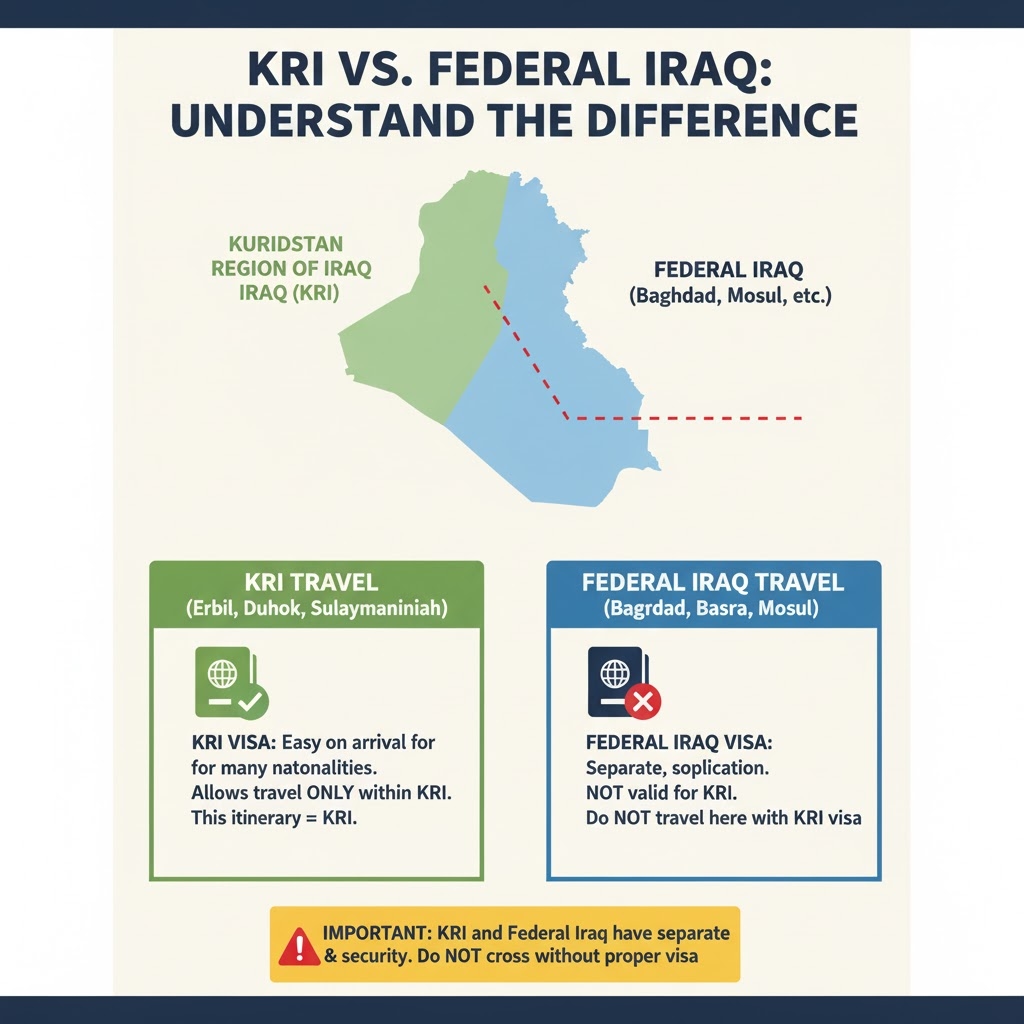
KRI Visa: Allows you to travel only within the KRI (the provinces of Erbil, Duhok, Sulaymaniyah, and Halabja).
Federal Iraq Visa: A separate, complex visa required for Baghdad, etc. This visa is not valid for the KRI.
This itinerary is exclusively for the Kurdistan Region (KRI), which is accessible and safe for tourism.
Do I Need a Visa for Iraqi-Kurdistan? (The New eVisa System)
This is a critical update for all travelers. The simple "visa on arrival" stamp that many travelers were used to has been replaced by a mandatory Iraq online eVisa system.
All visitors to the Kurdistan Region must now apply online in advance.
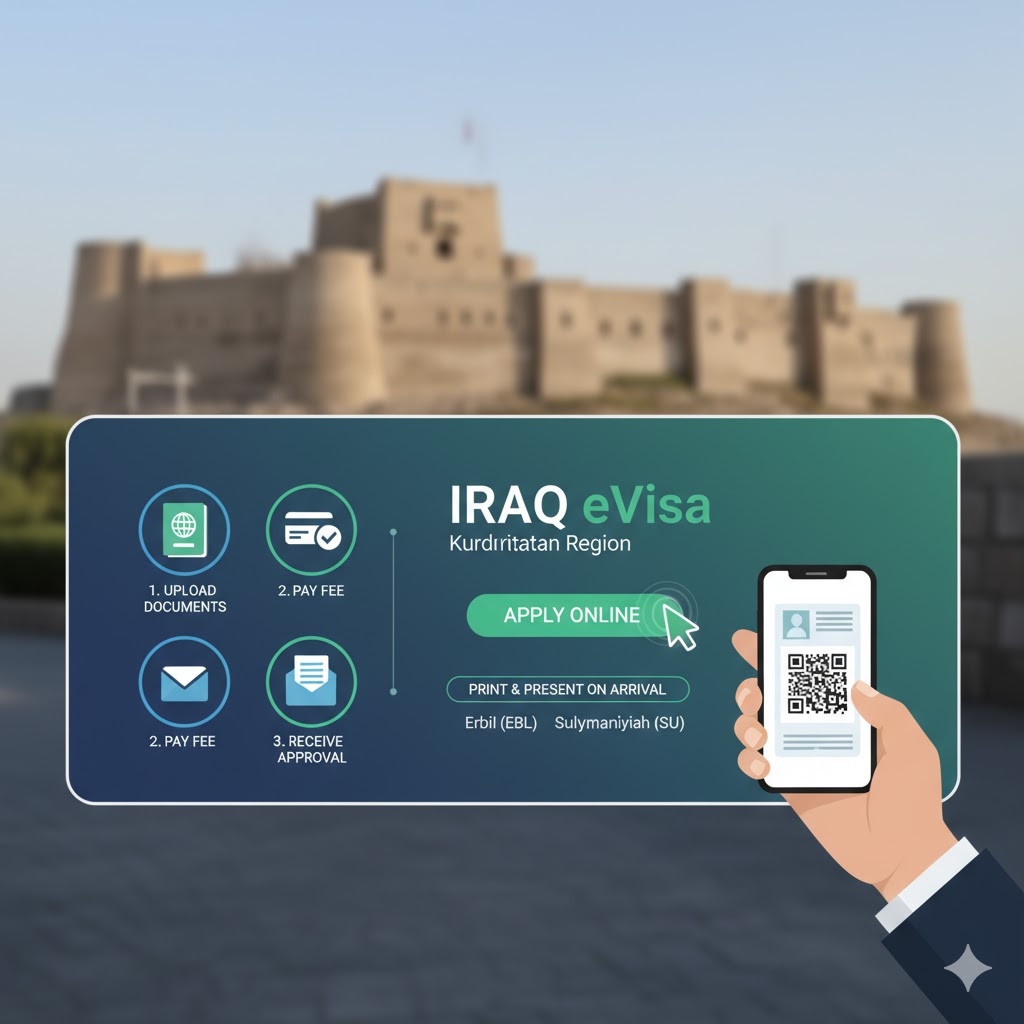
While this adds a step, it also standardizes the process. You apply online for Iraq eVisa, upload your documents (passport copy, photo, hotel booking), pay the fee, and receive your eVisa approval by email. You must print this approval and present it upon arrival at Erbil (EBL) or Sulaymaniyah (ISU) airports.
Is It Safer to Apply for an eVisa Through an Agent or the Government Site?
With the new eVisa system, you have two choices: apply directly on the government portal yourself, or use a trusted “evisa-iraq.org” e-Visa service provider.
Applying directly is always an option, but official government portals can be confusing, have translation issues, or be prone to technical glitches. A tiny mistake—like a blurry photo or a typo in your passport number—can lead to an instant rejection.
This is where a trusted visa agent becomes a huge asset. Their entire job is to remove that stress and guarantee a smooth process.
A Second Pair of Eyes: The biggest benefit is document verification. An agent acts as an expert check, ensuring your passport photo meets the exact pixel requirements, your forms are filled out correctly, and nothing is missing before it's submitted. This simple step virtually eliminates the risk of rejection due to small errors.
Support for Complex Cases: What if you have dual nationality, or an old visa rejection for another country? Agents know how to handle these complex cases, something a government form can't help you with.
No More Confusion: Agents simplify the application, provide instructions in your own language, and handle the confusing parts for you. If a government site has a payment failure or a technical error, you're on your own. An agent manages all of this, often using more stable payment systems.
But Is Using a “evisa-iraq.org” More Expensive?
Applying through the official government website is cheaper, but it comes with zero support, no correction options, and no refund if your application is rejected due to a simple error.
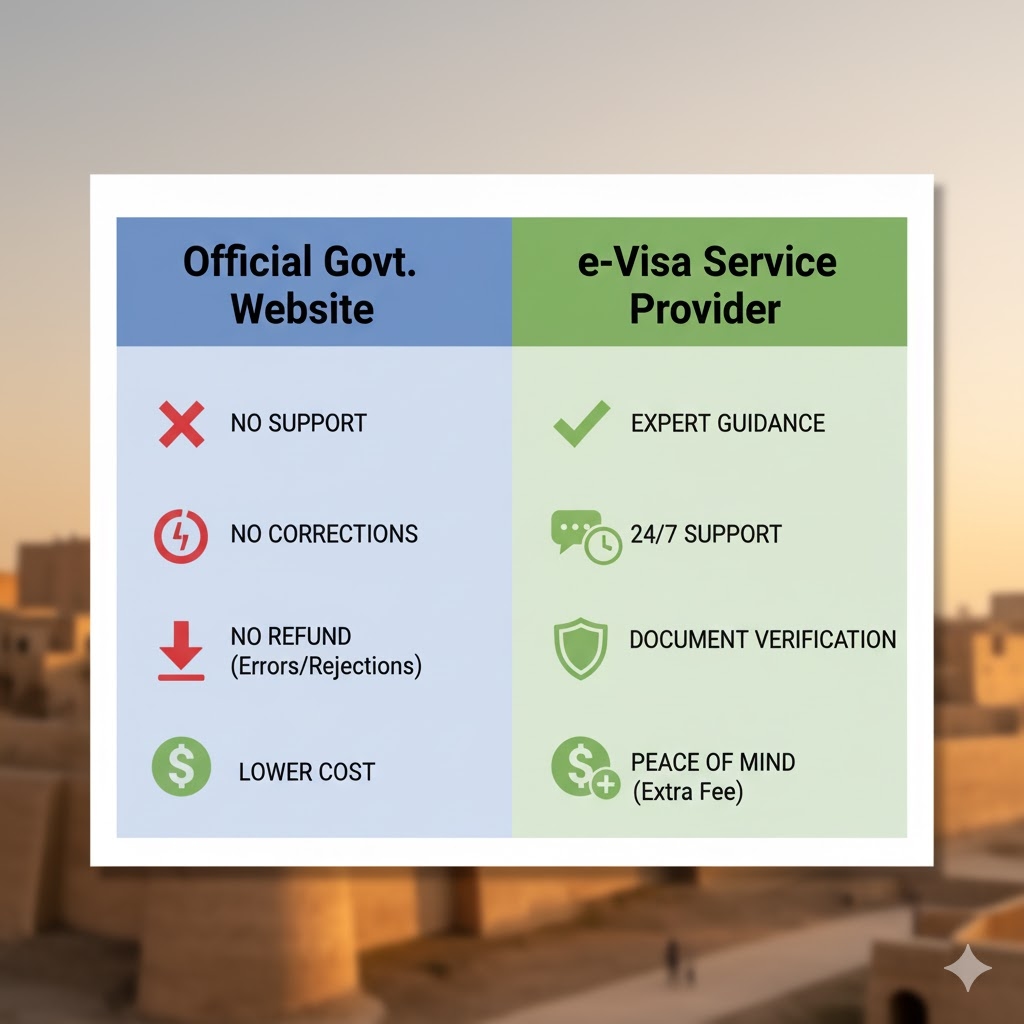
On the other hand, applying through a reliable e-Visa service provider or travel agency costs a little extra, but you are paying for a service. This service includes document verification, expert guidance, 24/7 support (often via WhatsApp or chat), and real-time assistance. For most travelers, that peace of mind is worth it to ensure the process is faster, safer, and stress-free.
What is the Best Time to Visit Iraqi-Kurdistan?
The best time to visit is during the shoulder seasons.
Spring (March - May): This is the most beautiful time. The hills are lush and green, and you'll get to experience Newroz (the Kurdish New Year on March 21st), a massive celebration of fire, dancing, and new beginnings.
Autumn (September - November): The weather is pleasantly cool, and the summer haze is gone, making it perfect for hiking and sightseeing.
Summer (June - August) is extremely hot, with temperatures in Erbil regularly topping 45°C (113°F).
How Do I Get to Erbil (Hawler)?
The main gateway is Erbil International Airport (EBL). (Note: Locals call the city "Hawler"). There are no direct flights from the US or UK, but connections are easy. You can fly to Erbil via:
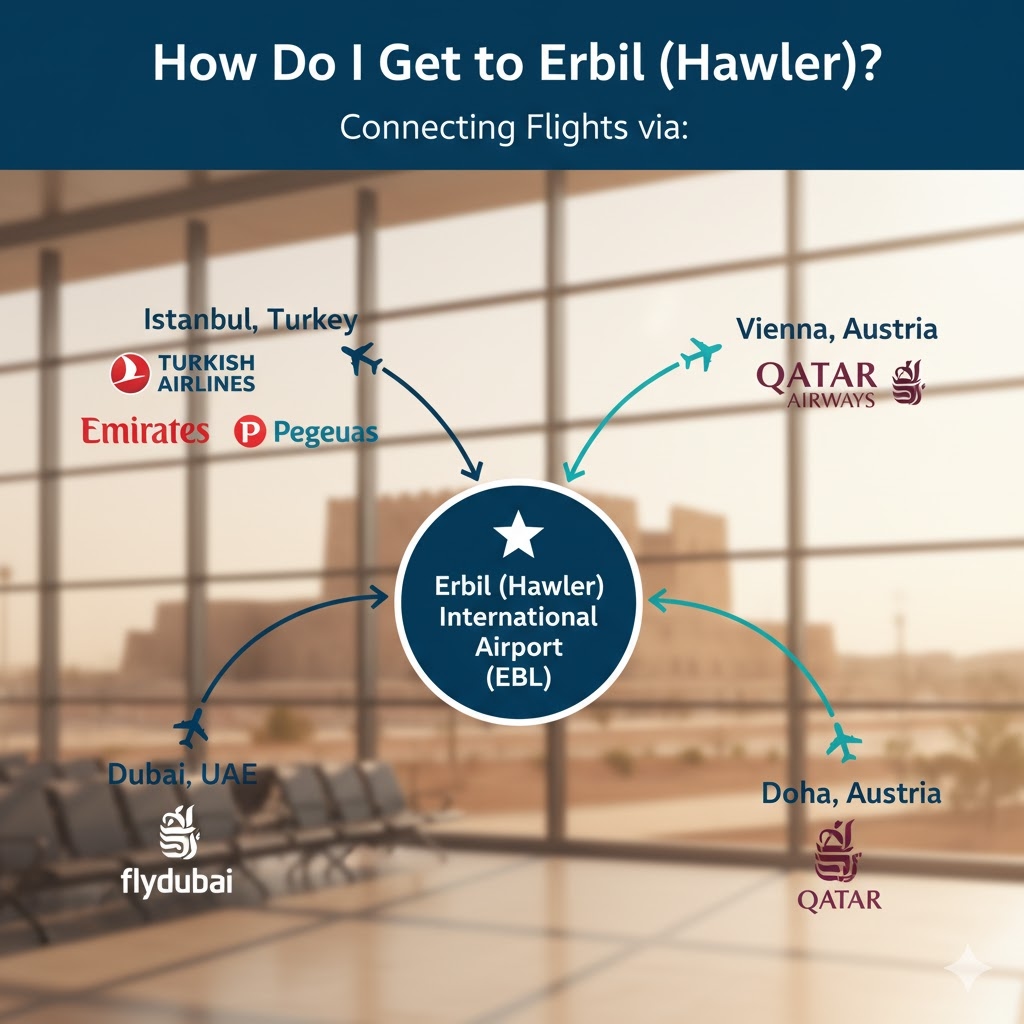
Istanbul (Turkish Airlines, Pegasus)
Dubai (Emirates, flydubai)
Doha (Qatar Airways)
Vienna (Austrian Airlines)
Is Iraqi-Kurdistan Expensive? What Currency is Used?
The official currency is the Iraqi Dinar (IQD). However, the US Dollar (USD) is the unofficial second currency and is accepted for large payments like hotels and private drivers.
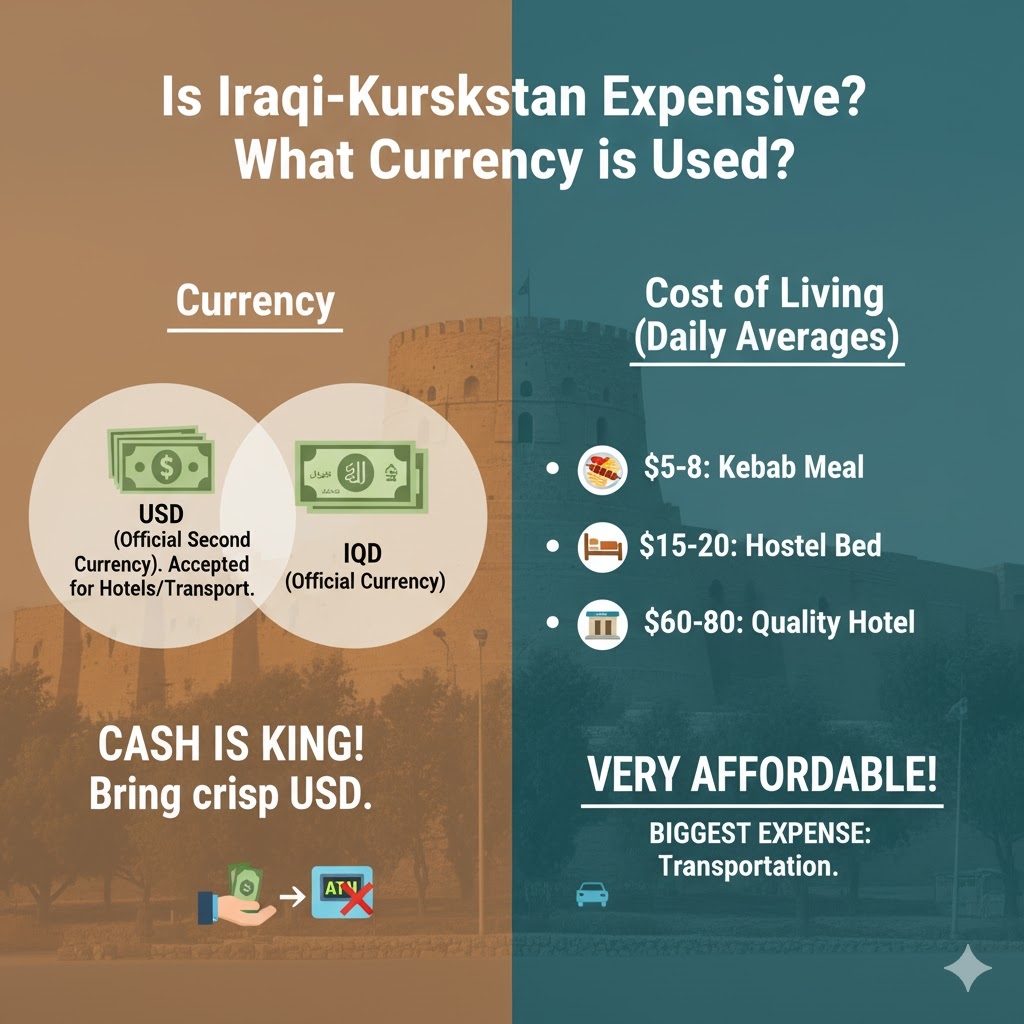
Cash is King: Bring plenty of crisp, new USD bills. ATMs exist in Erbil and Duhok (in malls and high-end hotels) but can be unreliable.
Cost: Kurdistan is very affordable. You can get a delicious kebab meal for $5-8, a bed in a hostel for $15, or a quality hotel room for $60-80. Your biggest expense will be transportation.
How to Get Around: Taxis, Buses, and Checkpoints
Getting around the KRI is an adventure in itself.
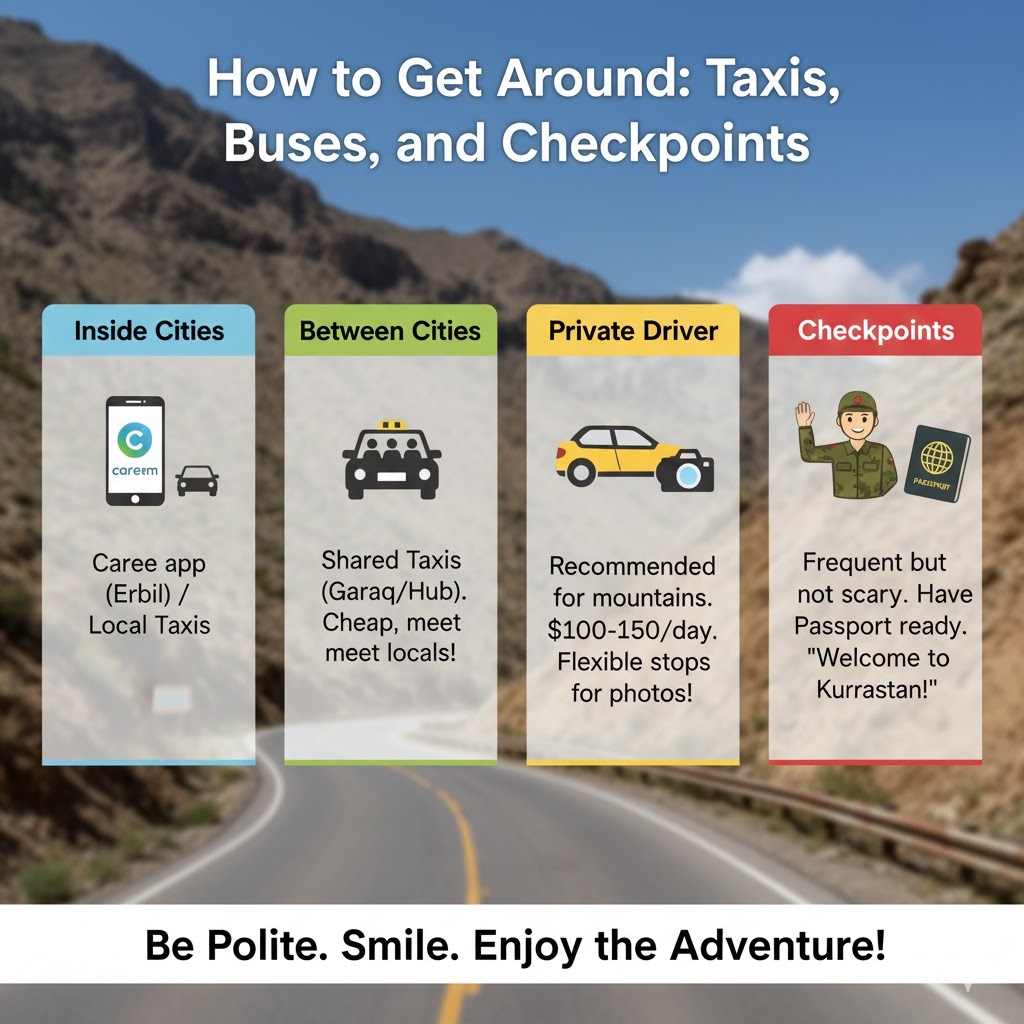
Inside Cities: In Erbil, the Careem app (the Middle East's Uber) is the best, most reliable, and cheapest way to get around. In other cities, local taxis are easy to find.
Between Cities: The primary method is shared taxis. You go to the city's "Garage" (a large transport hub), find the taxi going to your destination (e.g., "Duhok!"), and wait for it to fill with four people. It's cheap and a great way to meet locals.
Private Driver: For this itinerary, especially for the mountain roads, hiring a private driver for a day or two is highly recommended. It gives you the flexibility to stop for photos. Expect to pay $100-$150 per day.
Checkpoints: You will cross many checkpoints. They are not scary. Have your passport handy, be polite, and smile. The Peshmerga soldiers are professional and almost always wave tourists through with a friendly "Welcome to Kurdistan!"
How Do I Get a SIM Card and Stay Connected?
It's easy and cheap. Go to one of the official Korek or Zain mobile shops in a mall or at the airport. You will need your passport to register. For about $10-15, you can get a SIM and a massive data package (e.g., 30GB) that will keep you connected with good 4G in most areas.
What Should I Wear in Kurdistan? (A Guide for Men & Women)
Kurdistan is a Muslim-majority region but is religiously moderate and tolerant. The dress code is relaxed but modest.
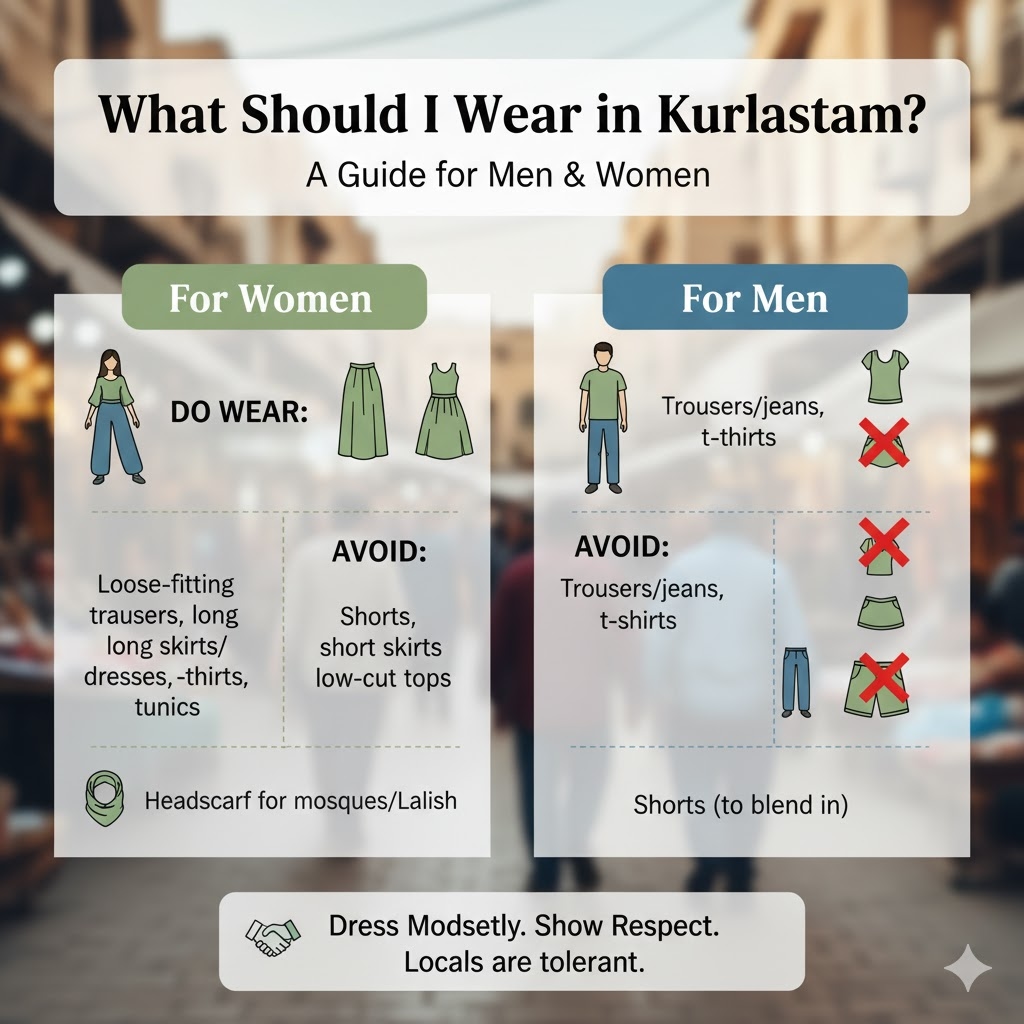
For Women: You do not need to wear a headscarf (hijab), except when visiting the interior of a mosque or the holy site of Lalish. Locals are very accustomed to Western tourists. However, to show respect and avoid unwanted attention, it's best to dress modestly.
Do Wear: Loose-fitting trousers, long skirts or dresses, t-shirts, and tunics.
Avoid: Shorts, short skirts, and low-cut or cleavage-baring tops.
For Men: You will almost never see local men wearing shorts. While you can, you will blend in better and show respect by wearing trousers or jeans, even when it's hot. T-shirts are perfectly fine.
What Language is Spoken? (And is English enough?)
The official language is Kurdish. There are two main dialects: Sorani (spoken in Erbil and Sulaymaniyah) and Badini (spoken in Duhok). Arabic is also widely understood.
In major cities like Erbil, you will find plenty of English speakers, especially among young people and in hotels, malls, and restaurants. Don't be afraid to ask for help; people will go out of their way to find someone who can speak English to assist you.
Are People Friendly to Tourists (Especially Westerners)?
I have saved the best for last. The hospitality in Kurdistan is arguably the most overwhelming and genuine in the world. You will be stopped on the street for selfies. You will be invited for tea (or chai) constantly. You will hear "Welcome! Welcome to Kurdistan!" dozens of times a day.
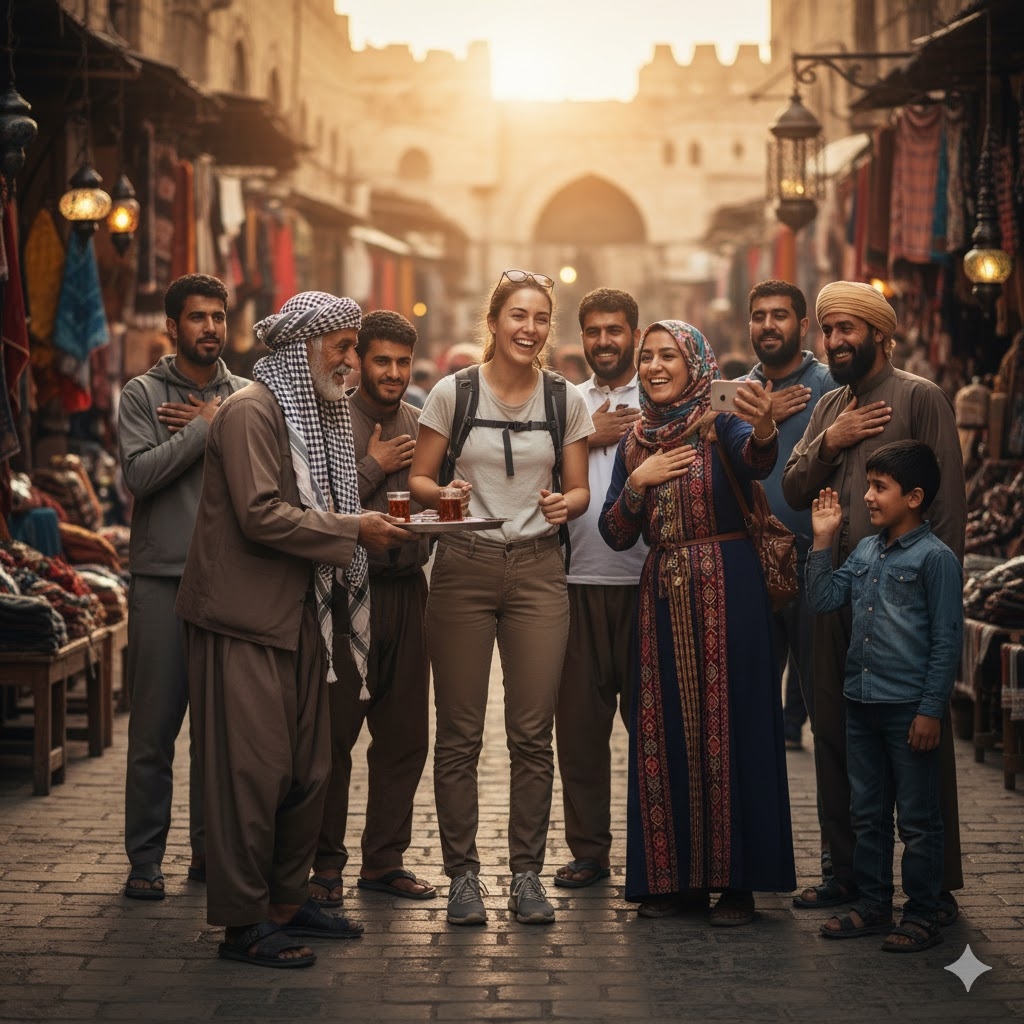
There is a deep-seated respect and friendliness towards foreigners, especially Westerners and Americans. Be prepared to be "adopted" by locals who want to show you their country.
Can You Drink Alcohol in Iraqi-Kurdistan?
Yes. Kurdistan is not a dry region. The large Christian (Assyrian/Chaldean) population means there are "bottle shops" in Christian neighborhoods like Ankawa in Erbil. High-end hotel bars and restaurants serve alcohol, and there is a relaxed bar scene in Erbil.
What Traditional Kurdish Food Must I Try?
Kurdish food is hearty, fresh, and delicious. Get ready for naan (fresh flatbread) with every meal.
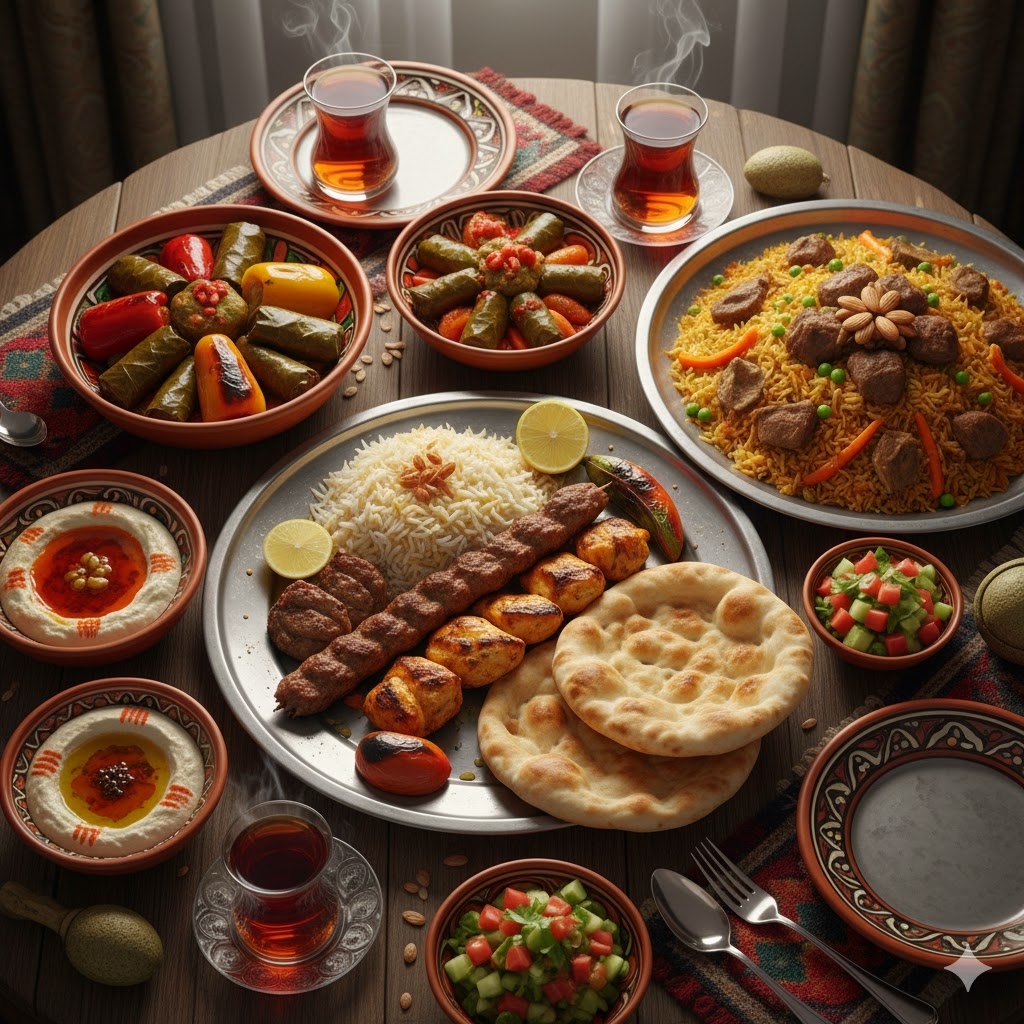
Kebab: The classic. Grilled meat skewers served with rice and bread.
Dolma: Stuffed vegetables (peppers, onions, vine leaves) cooked in a rich, tangy sauce.
Kurdish Biryani: Flavorful rice cooked with meat, vegetables, and aromatic spices, often topped with nuts and raisins.
Mezze: A selection of small dishes like hummus, baba ghanoush, and salads.
Chai: Endless glasses of sweet, black tea. It's the fuel of Kurdish social life.
Your Ultimate 7-Day Iraqi-Kurdistan Itinerary
This route gives you a perfect mix of ancient history, stunning mountains, and unique cultural sites.
Days 1-2: Erbil (Hawler) – The Ancient Citadel
Arrive at Erbil (EBL). Grab your SIM card, get some cash, and take a Careem taxi to your hotel. Spend the next two days exploring the capital.
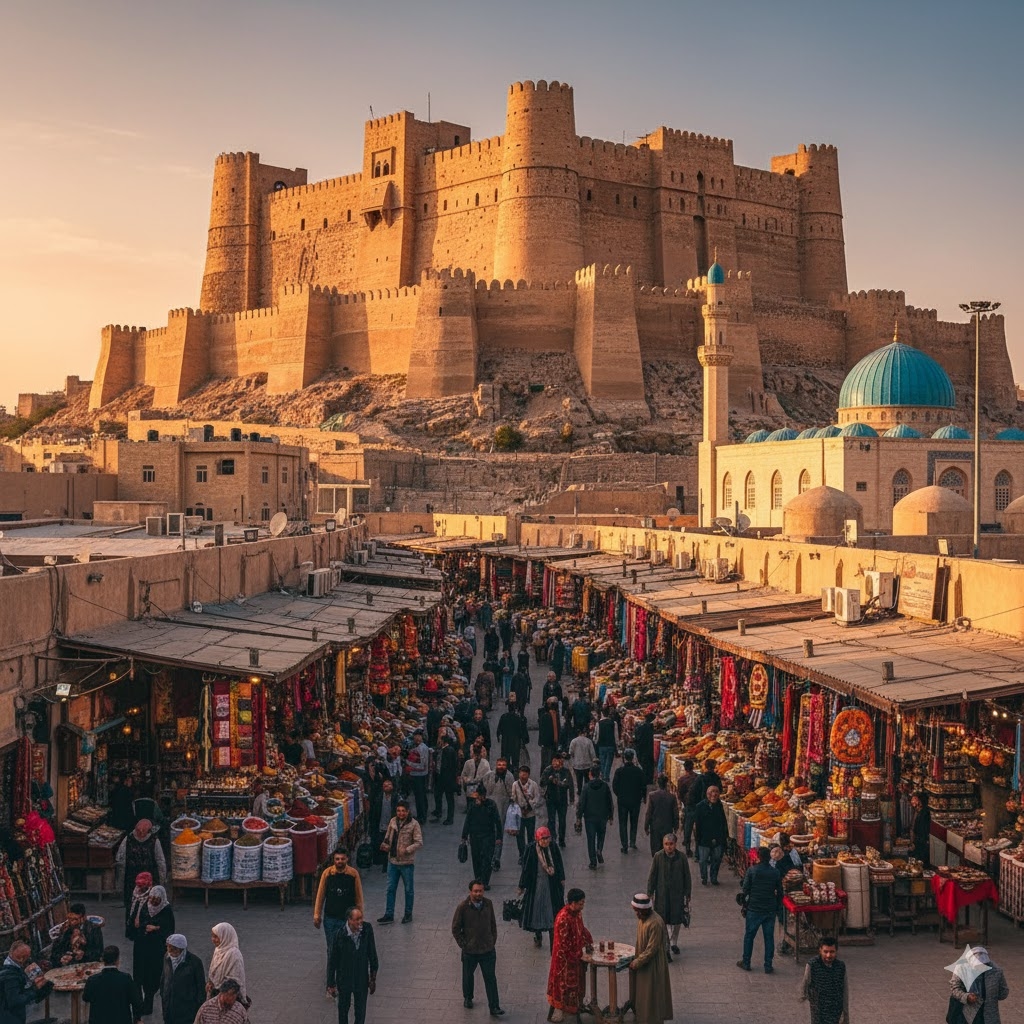
The Erbil Citadel: This is the main event. A UNESCO World Heritage site, it's one of the oldest continuously inhabited places on Earth (over 6,000 years). Wander its ancient, honey-colored alleys and visit the Kurdish Textile Museum.
Qaysari Bazaar: At the foot of the citadel is a sprawling, chaotic, and wonderful covered market. Get lost in alleys selling spices, "Kurdish honey," gold, and textiles. Stop for tea at a traditional chaikhana (tea house).
Jalil Khayat Mosque: A modern masterpiece of Islamic architecture with stunning blue tiles and intricate designs.
Ankawa: Explore the Christian suburb, known for its churches and excellent restaurants.
Day 3: The Hamilton Road to Soran (Rawanduz Gorge)
Today is for the mountains. Hire a private driver for the next two days. You'll be driving the legendary Hamilton Road, a marvel of engineering built in the 1930s that snakes through the Zagros Mountains.
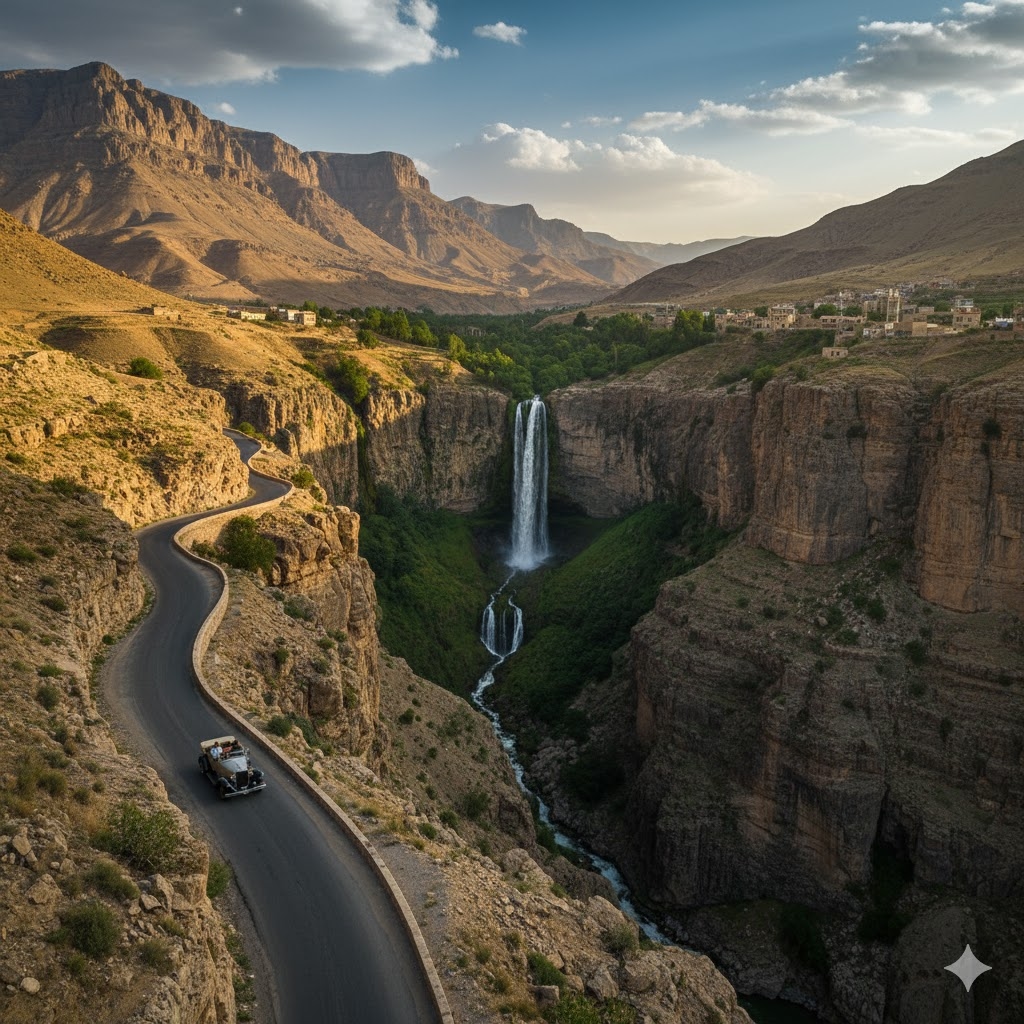
Your destination is the town of Soran or the nearby Rawanduz, which is perched on the edge of a dramatic canyon. On the way, stop at:
Bekhal Waterfalls: A beautiful, cascading waterfall just outside Rawanduz.
Rawanduz Gorge: Stand at the viewpoint for jaw-dropping views of the canyon below.
Overnight in Soran.
Day 4: Gali Ali Bag Waterfall & Duhok
From Soran, continue your journey west. Your first stop is Gali Ali Bag, the most famous waterfall in Iraq (it's even on the 5,000 Dinar note).
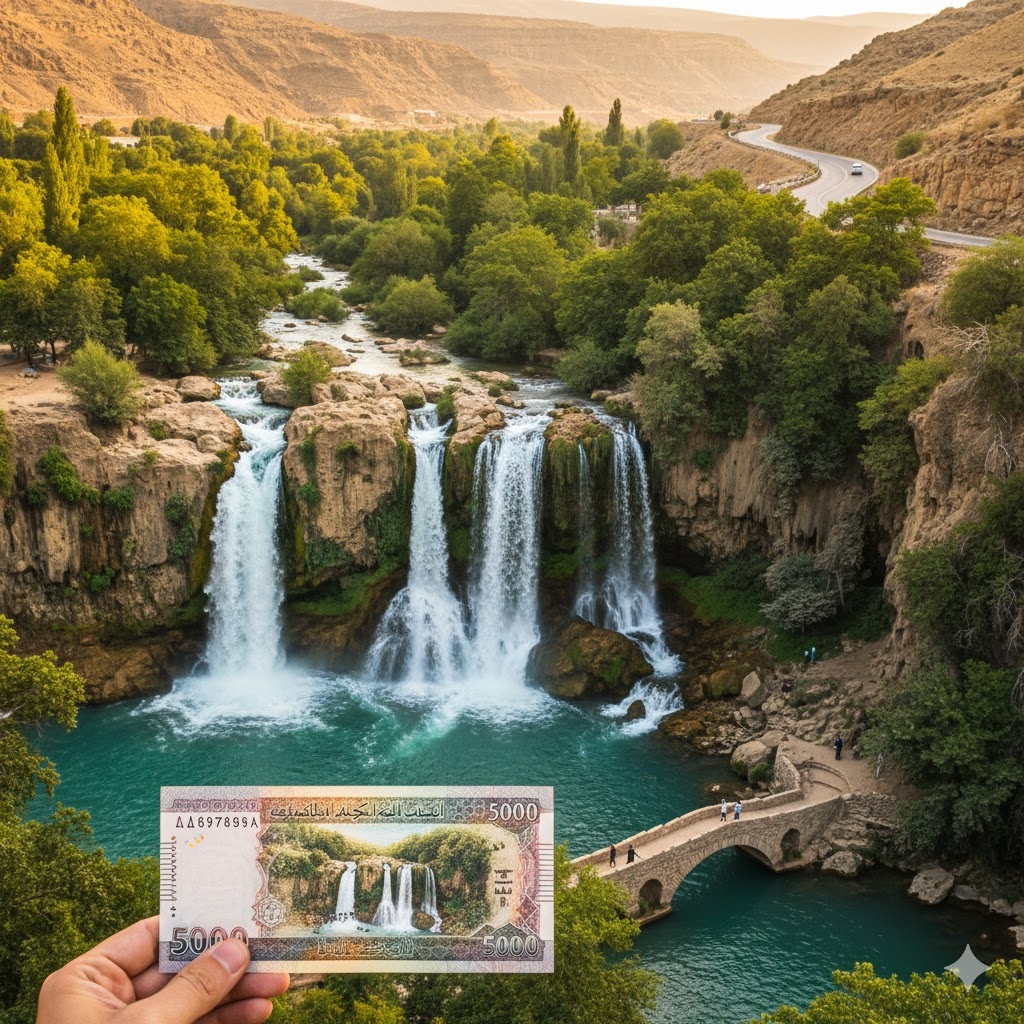
After, continue on the 4-5 hour scenic drive to Duhok, the third-largest city in the KRI. It has a different, more relaxed vibe than Erbil, nestled in a valley. Check into your hotel and spend the evening at the Duhok Dam, a popular spot for locals to walk, picnic, and enjoy the sunset.
Day 5: The Holy Yezidi Site of Lalish
From your base in Duhok, take a half-day trip to one of the most unique and sacred places on Earth: Lalish. This is the holiest pilgrimage site for the Yezidi faith.
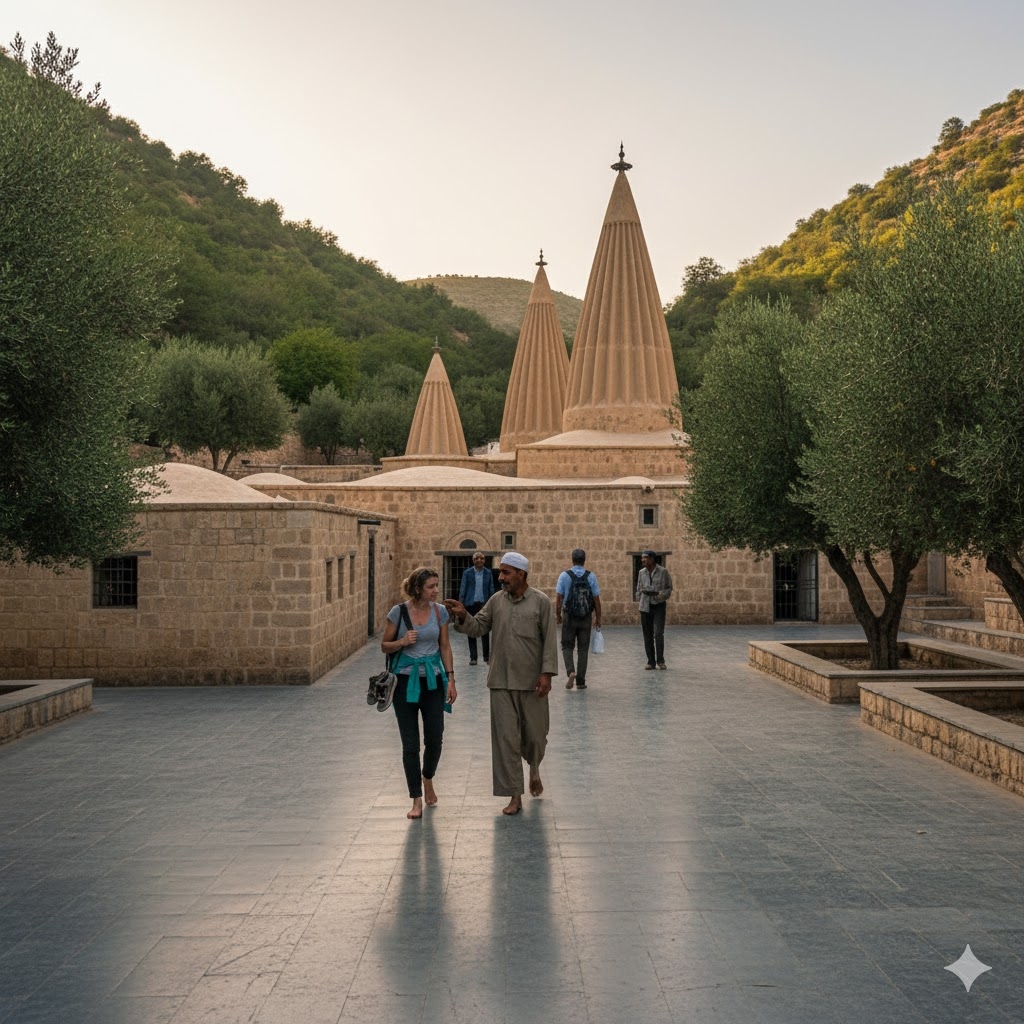
Important: You must remove your shoes at the entrance to the entire village. You will walk barefoot.
A local guide is essential to explain the beliefs, rituals, and symbolism of this ancient faith.
Be respectful, quiet, and ask for permission before taking photos of people. The Yezidi people are incredibly welcoming and happy to share their culture.
Day 6: The Hilltop Town of Amedi
On your second day based in Duhok, drive north to the stunning town of Amedi (Amadiya). This ancient town is perched 1,400 meters high on a flat-topped mountain.
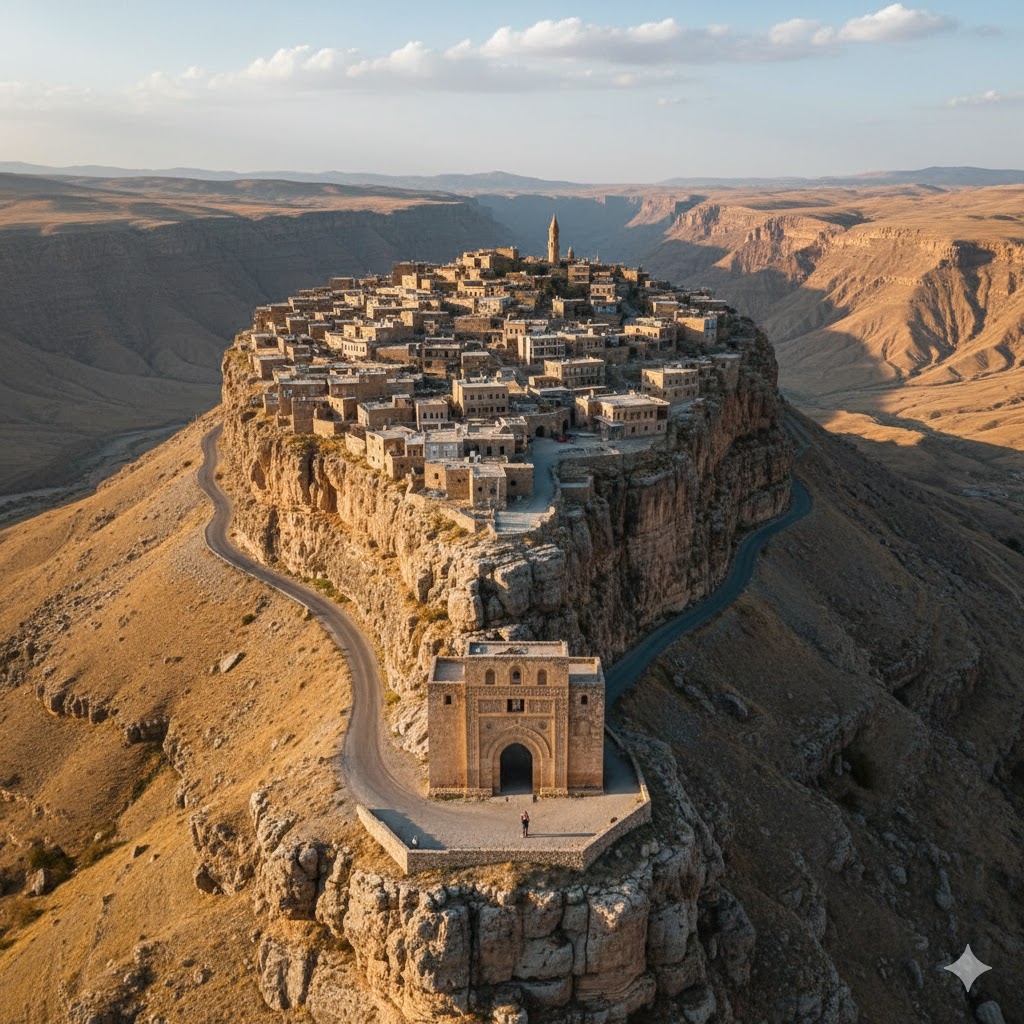
It's been inhabited for millennia and is rumored to be the home of the Three Wise Men. You can walk the entire circumference of the town in an hour. Don't miss the Badinan Gate, an ancient, carved entrance to the city. The views from every side are simply unbelievable.
Day 7: Return to Erbil & Departure
Enjoy a final Kurdish breakfast in Duhok. The drive back to Erbil is a straightforward 2-3 hours by shared taxi from the Duhok garage. This gives you plenty of time for last-minute souvenir shopping in the Qaysari Bazaar or one last cup of chai before heading to Erbil International Airport (EBL) for your flight home.
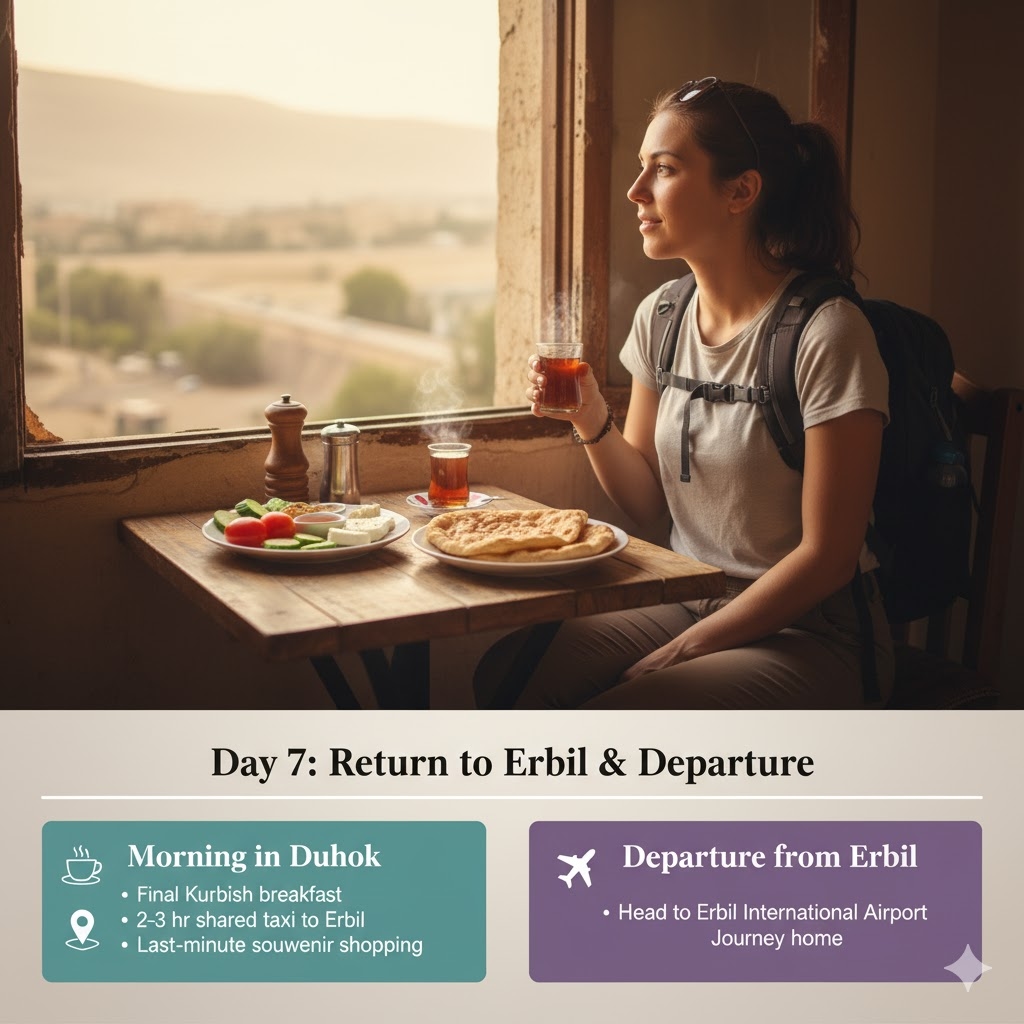
Your Adventure Awaits
Traveling to Iraqi-Kurdistan is an experience that will stay with you forever. It's a land that defies expectations, rewards the curious, and proves that the greatest stories are found in places the world has overlooked. Forget the headlines and go see for yourself.
